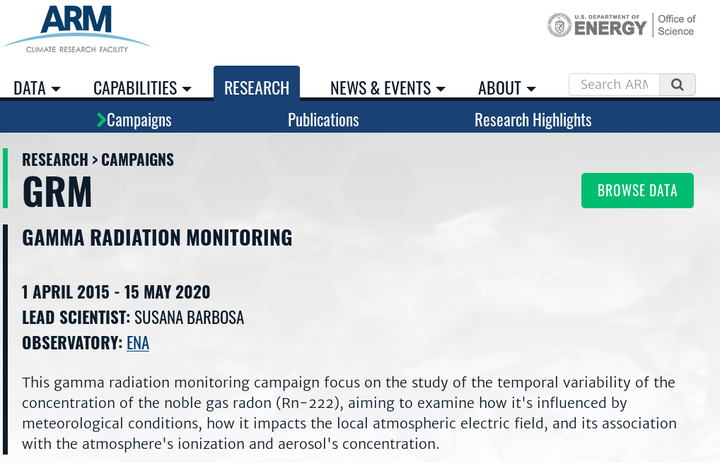Symposium on Oceanographic Data Analytics (NTNU, Trondheim)
Very happy to participate in the symposium on oceanographic data analytics at NTNU (Trondheim)... really an inspiring meeting!
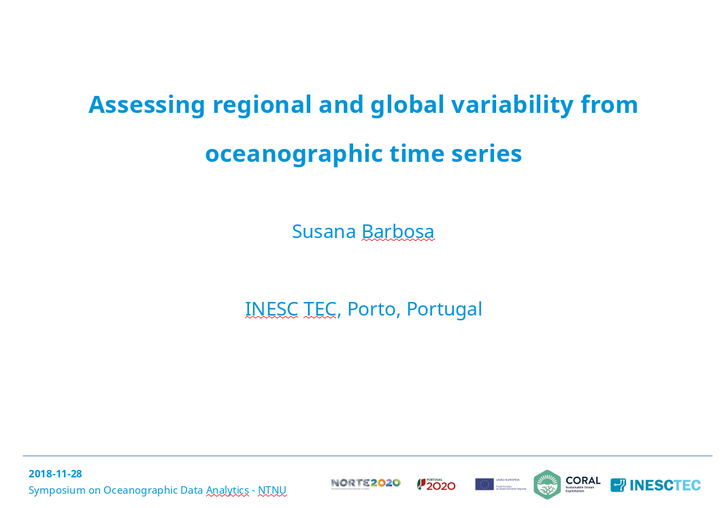
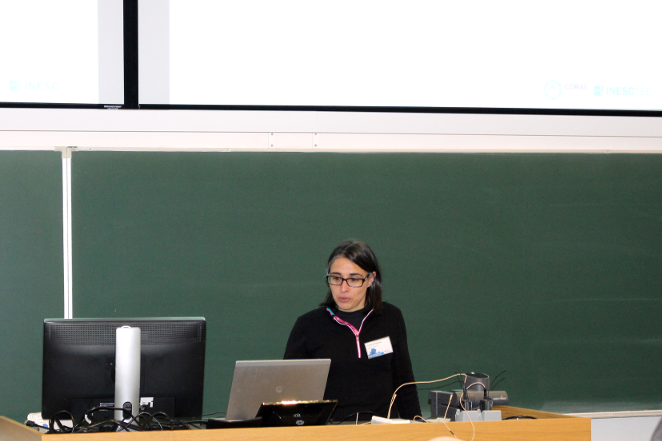
Very happy to participate in the symposium on oceanographic data analytics at NTNU (Trondheim)... really an inspiring meeting!


Happy to show the results of project RELECT (ENVRI TNA) at the 7th ENVRIweek in Riga, Latvia.
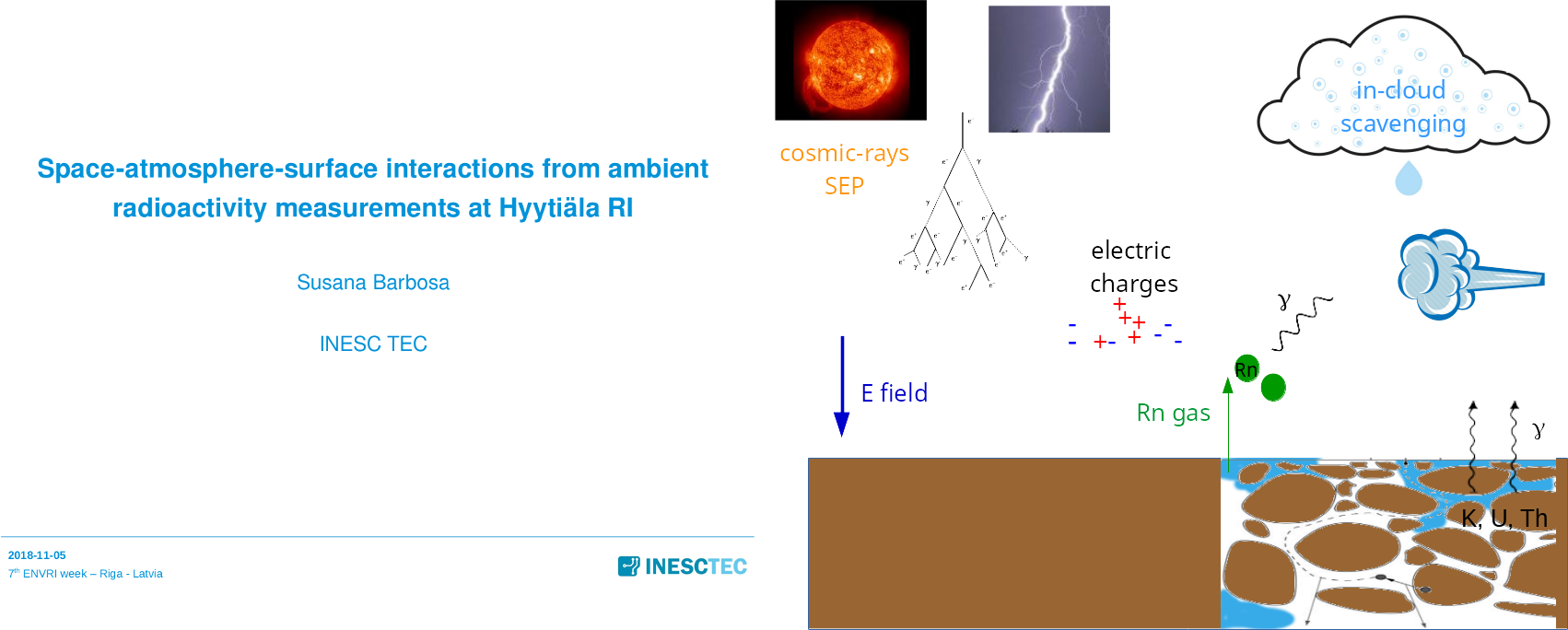
I never though I would ever return to Monchique - as a scientist - personally it's still one of my favorite places in the Algarve, and I tend to go there every time I'm around. However as a scientist I thought I never wanted to have anything to do with Monchique ever again... but as the saying goes "never say never"... and Monchique came to me 20 years after my first work for the MSc thesis, this time in the form of a field monitoring project on fluid-earthquake interactions with my good friend Heiko Woith from GFZ - just too intersting for me to resist!
The field work was very tough, the local institutions were not keen at all on having the local water springs monitored, and I spent hours on the phone and talking on site to people - the kind of work I hate the most :( And we could feel the depressing ambiance after the big fire in early August, people were suspicious and discouraged with what happened and how the fire situation wasdealt with, and it was not a merry sight at all...
Anyway we could still see some green coming out of the ashes, and in terms of field work I think we did what was possible given the constrains we had. I think I could have organized things better, and I also need to improve the notes-taking process during field work, it was a bit more messy than I would like. Although it was an exhausting week, I think above all this field work was a good learning experience, scientifically, and also personally - I'm very different from my 20-years younger me, but (I think!) in a good way :)
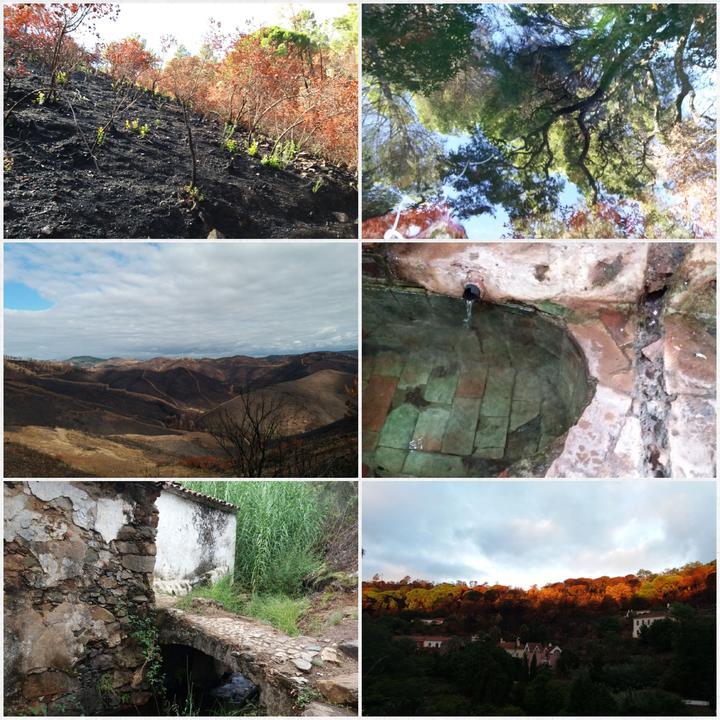
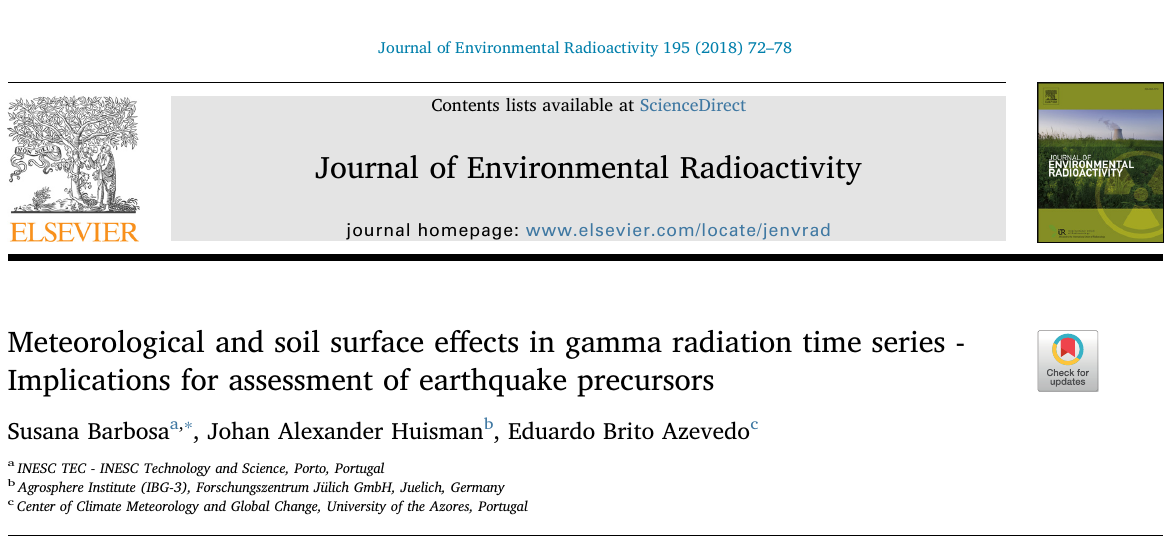
Measuring gamma radiation underwater at the Malaposta quarry. The system is working even better than I had imagined it would be possible :)
Two years ago a proposal for building such a system was refused with the overall comments: This project is a good technology development project and the successful completion of the project would have scientific, economic and socio-economic value. What is not clear is whether it would be successful... While the PI and their team clearly have experience in measuring radon, what they don't seem to have is any expertise on making an in situ device for long term use in seawater. Thus it is the maritimization aspects of this proposal that are weakest and are the major risk to the successful completion of the project."
Well, even without specific funding the system is now completed and fully working! Actually the reviewers were right - I wouldn't make it without the INESC TEC CRAS team - but together we (they!) made it: cheaper, faster, and better!
Yesterday while deploying the sensor for one more underwater measurement, I couldn't help remembering one of my favorite quotes:
“Until one is committed there is hesitancy, the chance to draw back, always ineffectiveness. Concerning all acts of initative or creation, there is one elementary truth...that the moment one definitely commits oneself, then Providence moves. too. All sorts of things occur to help one that would otherwise never have occurred. A whole stream of events issues from the decision, raising in ones's favor all manner of incidents and meetings and material assistance which no man would have believed would have come his way. Whatever you think you can do or believe you can do, begin it. Action has magic, grace, and power in it.” W.H. Murray, Scottish Himalayan Expedition
Next goal: deeper (>1000 m), and ocean (salinity)! I don't know exactly when or with what funding, but I'm sure we'll make it!!
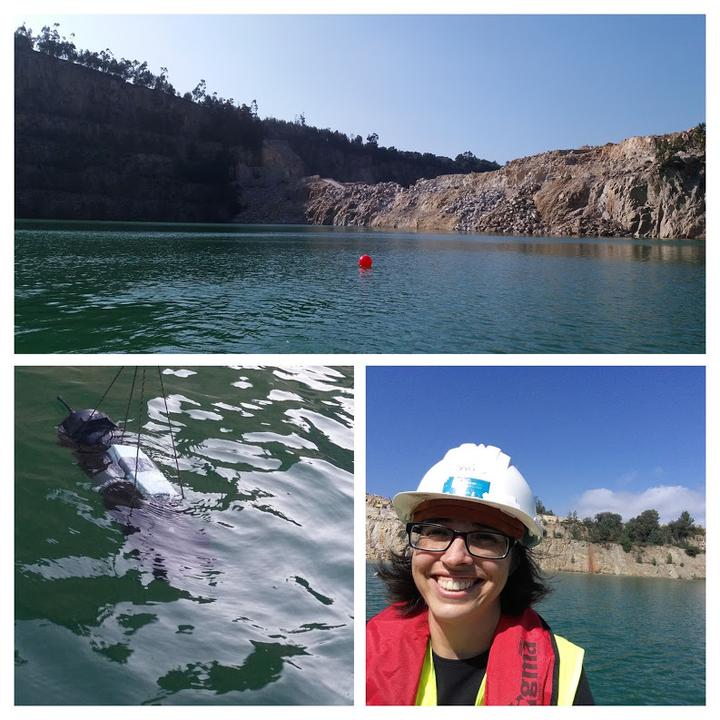
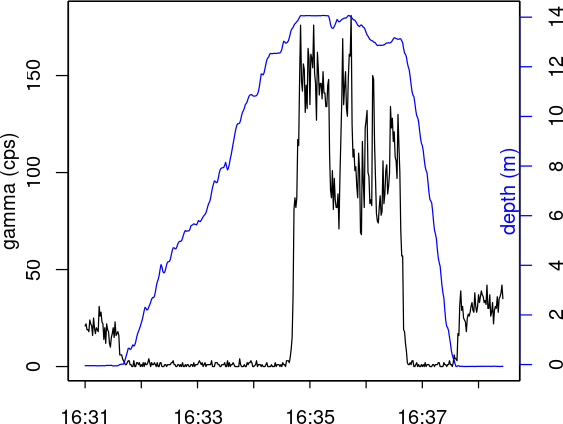
Nice and friendly meeting + interesting visit to cosmic-ray instruments (LIP, lisboa).
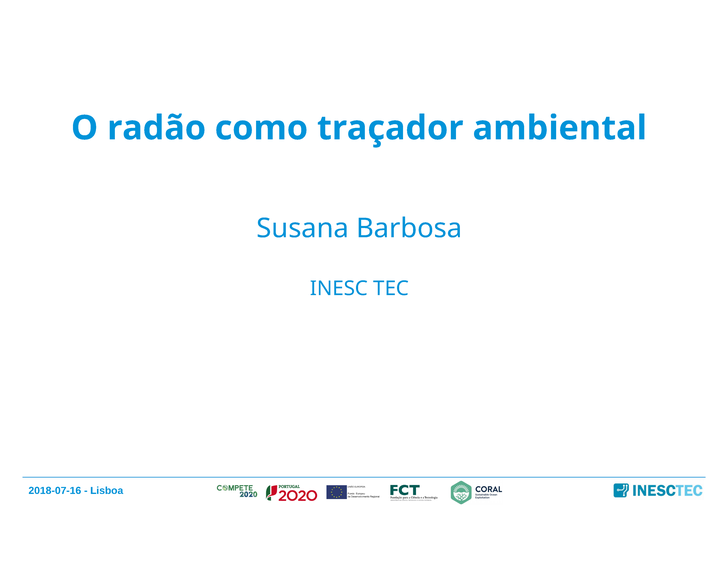
Today (coincidentally my birthday) Israel lost one of its greatest scientists, and I lost a colleague, mentor, and dear friend.
Gidi had a deep background in geology, but his work spread into diverse domains, from earthquakes to nuclear science, physics and even astrophysics. The scope of his activity reflects its never-ending quest for knowledge and understanding of the natural world. Gidi had a rare ability to feel comfortable with the unknown. Far more than any other scientist I know of. Despite the scientific training that teaches us not so much what is known, but the gorgeous dimensions of the unknown, most of us do fall easily on the human characteristic of replacing a question by an easier one, finding patterns everywhere, and disregarding small pieces of information outside the mainstream body of knowledge. Not Gidi. He was a master at pinpointing the unknown, the pieces of data that wouldn't fit the big picture, the unexplainable experiments. Some of my fondest scientific memories are of Gidi showing me curious results of an experiment, some odd measurements, or a time series defying explanation. He would show me the thing, wait for my reaction, and usually an exchange of arguments would follow... I would advance possible explanations, Gidi had of course thought about them all already, would answer me back, and we would continue back and forth until I usually would backed down and acknowledged I couldn't explain it. Gidi would then lean back on his chair and would smile in a kind of "I rest my case" silent statement.
As often happens in science, Gidi was ahead of his time. And only time will tell whether some of his very controversial ideas will become mainstream science after all. I suspect at least some of them will. But even if not, its influence in the field of environmental radioactivity was enormous, and will remain so. Gidi not only had ideas, but also stood them to the test in a multitude of field and laboratory experiments, organising meticulously all the data, and regularly publishing his results. He leaves a prolific scientific legacy for the next generations. Gidi combined a passion for science with an immense discipline and ability to organize everything, probably a reflection of his upbringing and germanophile background. I consider myself above average in terms of organization skills, but Gidi was definitely on the star league. He took copious notes (typically on his yellow lined notebooks), filed diligently all the documents, never missed a deadline, or failed to reply to an email or letter. His devotion to work was unmatched, and he was one of the most assiduous scientists at the geological survey, including on Fridays, even after being emeritus. Even when his health was failing. Gidi kept working relentlessly. The last time I was sitting in his office in Jerusalem (February 2017) Gidi showed me a graph with a time series of gamma measurements with a huge peak. It was very strange and while I puzzled at the graph he commented kind of triumphantly and laughing as if telling a good joke: the sensor is working perfectly, this was when I returned from a treatment!
Although it might seem surprising, in addition to a refined and intelligent sense of humor Gidi had an easy, almost childish laughter... rather than complaining he tended to look at small mistakes, inefficiencies, illogical and contradictory situations as a funny thing. A surprising number of small things would make him laugh; he then typically would comment and explain the specific situation, ending with a burst of laughter and diving his clear eyes into yours as if sharing a secret. I'll miss that laughter!
Gidi's scientific accomplishments pale in comparison with an even more impressive feat: the place he got in my heart, and in the hearts of many who had the privilege to work with him. Gidi was a kind and tolerant person, probably the most tolerant person I ever knew. And of a legendary stubbornness! He accommodated the two seemingly opposing characteristics with an always respectful and kind attitude, and a very high degree of patience. A pacifist at heart, he was nevertheless a determined and mighty warrior in the scientific field, pushing the limits of what we know (and what we think that we know). It was extremely difficult to make him change his mind on anything, but at the same time he didn't refused to listen, and to discuss generously and openly.
His widening efforts are well reflected in the "Gidi's Rn mafia" - a term coined by Heiko Woith to refer to the unlikely group of people with diverse scientific backgrounds (geology, physics, mathematics, statistics, astrophysics), and from different countries (Israel, Spain, Slovakia, Germany, Portugal, Austria,...) that Gidi put together over the years in its never-ending endeavor to share and discuss scientific findings. Despite what the designation might suggest "Gidi's mafia" was not a group of followers and supporters of his often very unconventional ideas. Quite the opposite! We often acted as a devil's advocate board for his ideas, and we did fight vigorously over the years on what drives radon variability and on the analysis and interpretation of radon measurements. We never got even close to a consensus in any of the many issues on the table, except that every meeting was inspiring and a stimulating learning experience, driven by Gidi's endless energy and enthusiasm. Last meeting in Vienna in April 2018 was the first without Gidi's presence. He was supposed to come, but had to cancel at the last minute because of his failing health conditions. The shock I felt at the time when I realized he would not come was only surpassed by what I felt at the actual meeting. It was very interesting from the scientific point of view, but clearly not even close to what it used to be. I think each of us performed his role quite professionaly, but emotionally it was very difficult, at least for me. It was only then that I started to realise how strong was Gidi's influence, and that I had a glimpse on how much I would miss him.
I learned a lot with Gidi, much more than I thought would be possible. Not only about radon and science, but about life. And amazingly he kept teaching me until the very end! and I suspect well beyond into the future... I'm very grateful!!
My thoughts on this sad occasion are with his wife Schlomit and his family, in particular his 3 children and 10 grandchildren. עליו השלום
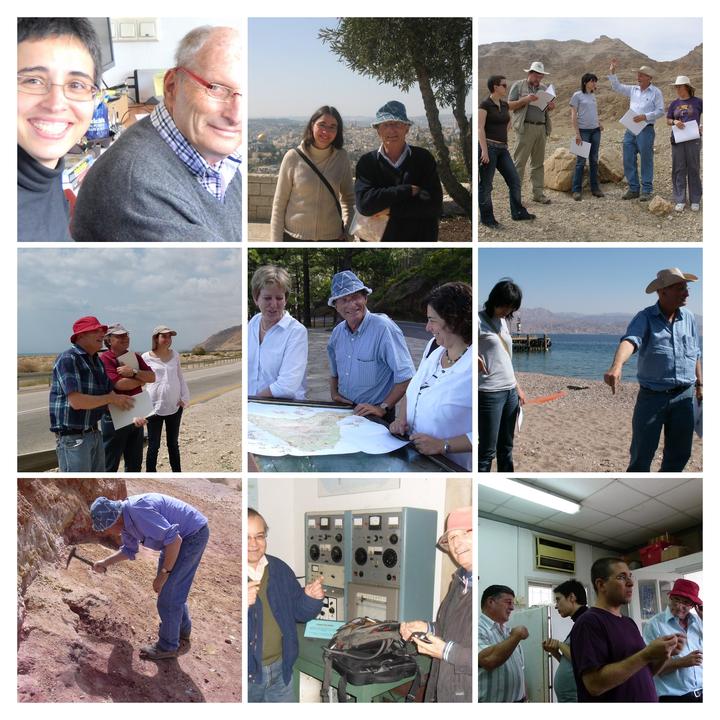
Preparing a Research Topic on one of my favourite subjects - trends! Abstract submission: 30th September 2018.
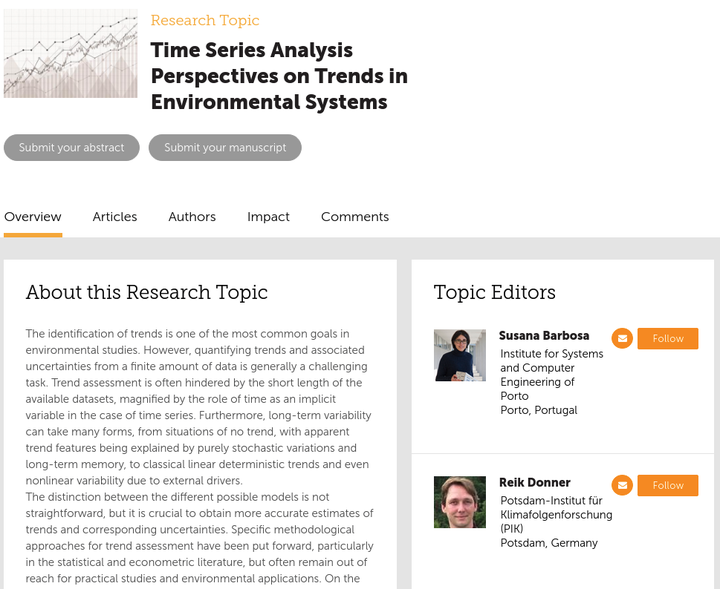
Really enjoyed the TREICEP meeting (VI. Terrestrial Radioisotopes in Environment International Conference on Environmental Protection), in Veszprém (Hungary).
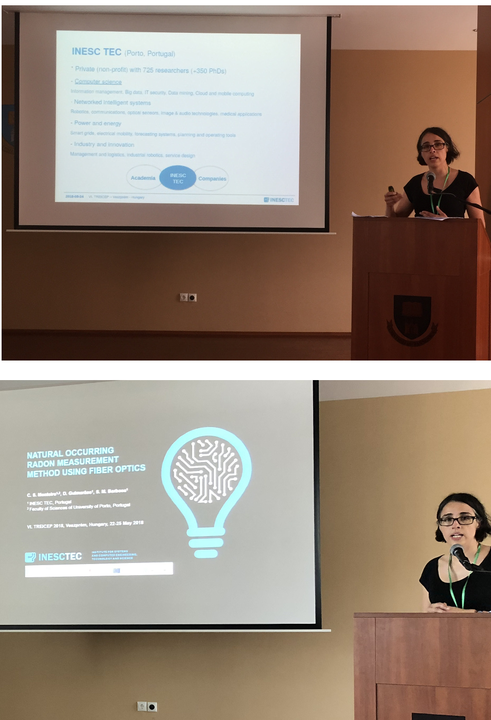
The Gamma Radiation Monitoring campaign at the Eastern North Atlantic (ENA) ARM site in the Azores was extended up to May 2020!
